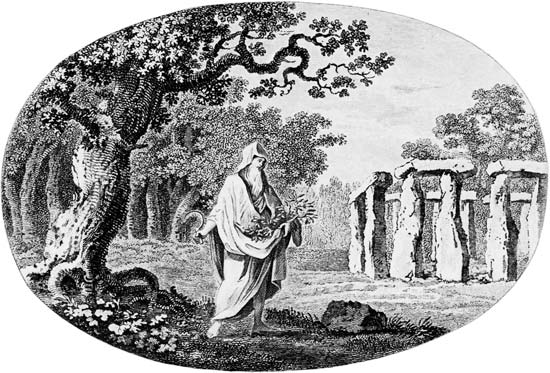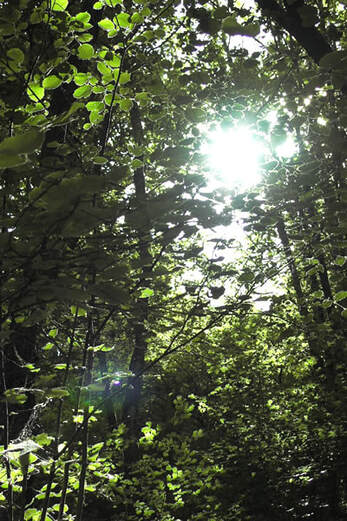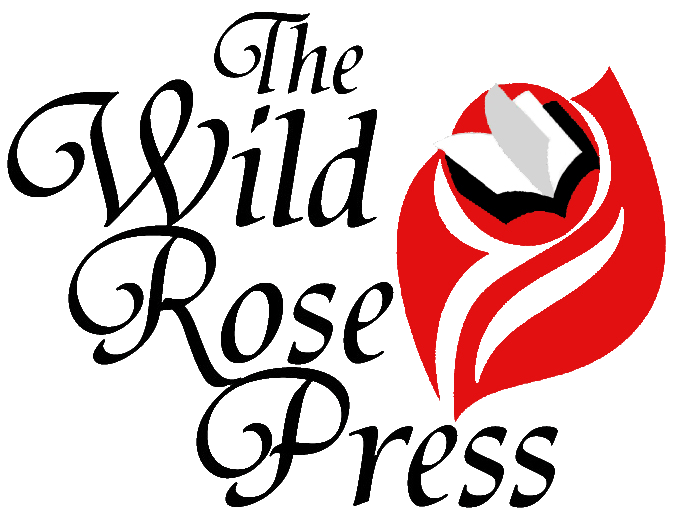|
Sorcerers? Healers? Priests? Political leaders? Who were the druids? They are often painted mysteriously, but they were an active and important part of Celtic life for centuries. They formed the highest level of society and performed the duties of teacher, doctor, priest, and judge. Since they wrote nothing down, information about the druids only comes from outside sources. As modern studies and theories differ wildly from one another, for this introduction I am going to stick to more traditional assumptions. They are believed to have been around for centuries, even for thousands of years. The earliest records of them come from Romans in the third century BCE, but it is believed that their origins are much older. They lived in what is modern Ireland, Great Britain, and France. They were naturalists, debatably polytheistic pagans. They revered the natural world. The term “druid” could come from old Celtic words meaning “oak-seer” or “oak-knower”. They considered oak trees as sacred and held ceremonies in oak groves. It's possible, maybe even likely, that they believed in reincarnation. Surprisingly, while they might have made use of stone circles, evidence has come to light that Stonehenge existed long before the first Druids. Their teachings and beliefs were passed along through oral tradition, learned by memorization. Julius Caesar mentioned that the lessons could last as long as twenty years! While there were surely some bad eggs, as in any society, they were generally counted on as moral philosophers, healers, judges, and leaders. There were both male and female druids. The Romans noted that they performed human sacrifice, but those writings or accusations are often dismissed as scurrilous propaganda. However, there is some evidence that ancient Celtic tribes did perform human sacrifice, so the council is out on this one. Obviously, I like to think they did not. In Irish mythology, druids are connected to the Tuatha de Danaan. Stories with druids abound, such as Deidre of the Sorrows and Finn MacComhall and the Fainna. They were considered to have great gifts of healing and prophecy. Early Christian monks wrote about them, recording their practices and the ancient, Celtic laws called the Brehaon laws. The monks wrote about divination and supernatural powers. Romans marked the beginning of the end of the druids' power, although it took centuries. Christianity further diminished their status. In their lifetimes, Druids could not have been so mysterious or elusive, important as they were to Celtic society. But their legacy is mysterious, shrouded in the mists of time. For more Medieval Monday magic, be sure to stop by Mary's Tavern and Barbara Bettis' blog. Happy Medieval Monday! Originally uploaded by Spone at French Wikipedia.
4 Comments
Mary Morgan
11/7/2022 08:59:07
A fascinating and wonderful post on Druids, Anastasia. And yes, I've read and heard from modern Druids that lessons took up to twenty years!
Reply
Anastasia
11/8/2022 12:39:18
Mary, I've been wondering if I include a post about modern Druids. They share some great information online. It's all so interesting!
Reply
Barbara Bettis
11/7/2022 17:31:50
Absolutely fascinating! I loved knowing more about the Druids. As you say, they left no records of their own, so the information about them is often from their enemies or detractors. They must have been revered and respected in their day. Thanks for the wonderful new information. Happy Medieval Monday!
Reply
Anastasia
11/8/2022 12:42:15
I agree! I believe they were revered and respected in their day. Possibly feared at times, too, but they were certainly important to the societies in which they lived.
Reply
Leave a Reply. |
Romance!It's no secret that I prefer fat HEAs. Where better than in a beautiful romance? Archives
June 2024
Categories
All
NewsletterFrom me to you with a smile. Thank you!You have successfully joined our subscriber list. |



 RSS Feed
RSS Feed